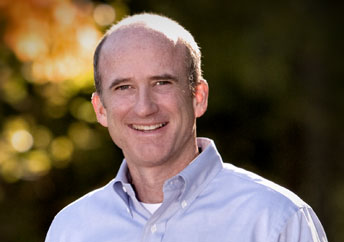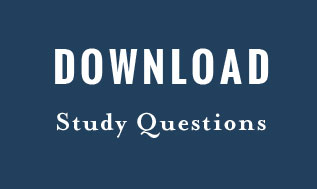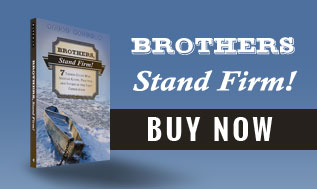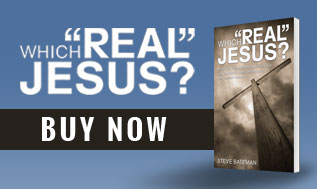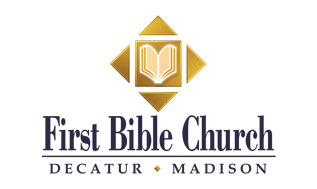How to Understand this List (And a Shortcut)
The first objection to buying and reading books is this: I don’t have time. The second objection is this: I don’t have money. Buying and reading books will cost you time and money. Most good things do. Reading is, I think, one of the costs of discipleship. It is also one of the costs of leadership. In the words of Howard Hendricks: “Leaders are readers and readers are leaders”.
Everybody’s “top twenty books list” will be different. These are the books that God sovereignly put in my life at just the right time. They have shaped my thinking and formed my strategy over the years. It hurts me to leave out so many other great books! I thought about this list in light of this question: If I could open up the skulls of my son and daughter and pour in information found in books outside of the Bible, which books would I choose?
Don’t know where to start? Here’s a shortcut. If the Lord called me to a mission field where I could only take six books, I would choose, in this order, 12,11,17, 14, 6, and 20.
Another hint: You can google most of these books and find them on Amazon.com. Several of older ones have been revised and updated.
Ten Books That Changed (and Saved) My Life and Why
1. The Pursuit of Holiness, Jerry Bridges (Navpress, 1978)
I love God with all my heart. Sometimes. From my childhood years, I have wanted to know, love, obey, and exalt him even more. I discovered this book the year I graduated from high school (1978) when it cost $2.25. It has been a guideline for my walk with God for nearly three decades. This little book changed my life.
2. Battle for the Bible, Harold Lindsell (Zondervan, 1976)
I went to a Southern Baptist college in 1978 to train for the ministry. That was during the inerrancy wars in the Southern Baptist Convention. Some moderates look back on those days, with all of the ugly church politics, and say that things weren’t as bad in the SBC colleges and seminaries as the conservatives made them out to be. Well, I was there, and it was that bad. I was a fourth generation Southern Baptist but my Southern Baptist professors were telling me the Bible was full of myths and errors and could not be trusted. Halfway through my freshman year, I began to lose my faith. On a lonely walk in the woods near the campus one day, I told God I was not even sure he existed (note the irony in that).
But then I discovered that there were hundreds of Southern Baptist scholars who did believe the Bible, and through them I found Harold Lindsell’s book. This is a brief history and defense of the doctrine of the inerrancy of Scripture with several examples of apparent contradictions in the Bible along with some plausible resolutions. I’ll never forget that day in my religion class when my professor held up one of these “contradictions” to ridicule the Bible one more time. I’ll also never forget the look on his face when I presented the resolution in front of the class. Lindsell’s book in 1978? $6.95. The look on my professor’s speechless face? Priceless.
I’m not necessarily recommending this book as a top ten for you to buy (even if you could find it in print) because so many better books have been written on this subject in recent years (see below). If you read it, it won’t be a waste of time. I just want you to know that God used this book to rescue me from despair and to save my life.
3. Evidence that Demands a Verdict, Josh McDowell (Campus Crusade for Christ, 1972)
Lindsell’s book just whet my appetite. I needed more equipment. For that reason, I owe a debt to Josh McDowell. He was and is an able apologist and in those days he was traveling with Campus Crusade from campus to campus giving lectures and taking any and all questions from university students skeptical of Christianity. I remember thinking, “This guy is not afraid of anybody!” I never forgot the lesson: All truth is God’s truth and Christians have no need to fear the truth.
Like the Battle for the Bible, this is a good book to have, but other books have come out in recent years that are easier to read with updated scholarship (see below). There is a new, updated version called New Evidence the Demands a Verdict which is preferable. This is one more book that saved my life.
4. The God Who Is There, Francis Schaeffer (Intervarsity Press, 1968)
In my sophomore year I changed my major from “religious studies” to “political science”. I made the decision to leave the orbit of skeptics posing as spiritual leaders (wolves posing as sheep?) based on a verse I read in my quiet time one morning: “Leave the presence of a fool, or you will not discern words of knowledge” (Pr. 14:7). So I flirted with a career in law. I dreamed, for a season, of serving God as a prosecutor instead of a preacher.
My poli-sci classes required a good bit of philosophy and I entered a whole new world of academia. Providentially, I entered that world with Francis Schaeffer’s book by my side. It was from Schaeffer that I first read the word “relativism”. I have used it ten thousand times since. This is tough reading, but Schaeffer was a prophet who anticipated forty years ago where our culture would be today.
5. Understanding and Applying the Bible, Robertson McQuilkin (Moody, 1983)
In 1980, I transferred to Columbia Bible College (now Columbia International University-CIU) and changed my major again. I had become weary of arguing about the Bible and I just wanted to learn it. I was tired of studying what liberal theologians thought about the Bible. I just wanted to study the Bible.
But there is a right way to study the Bible, and a wrong way. Hermeneutics, the science of interpretation, is in short supply these days, in our churches and in our courts. But the written text deserves to be treated with great respect. Robertson McQuilkin, who was then the President of Columbia, taught a course on Biblical hermeneutics (how to interpret the Bible) that changed my life. It is to your benefit that in the same year that I graduated with my B.A. in English Bible, McQuilkin published his lecture notes in the form of this practical book. This is for all Christians who want to learn to feed themselves from the Word of God, instead of depending on being spoon-fed by others.
6. Introduction to Biblical Ethics, Robertson McQuilkin (Tyndale House, 1989)
I loved the way McQuilkin communicated ideas. He was thoughtful, clear, and hesitant in all the right places. Fair to his opponents, logical in his analysis, he had the ability to make difficult topics understandable. Again, he took all his lecture notes from the ethics class and published them in this great book. Just about every controversial topic you will encounter such as war, homosexuality, abortion, giving, euthanasia, divorce, and a host of others, is in this book. Parents, this book will help you raise your children to look at today’s cultural issues with a Biblical worldview. I cannot tell you how many times I have consulted this book as I have prepared sermons for you through the years.
7. The Great Doctrine of Original Sin Defended, Jonathan Edwards (1758)
After four years in youth ministry in Houston, it was time to go to graduate school. But which seminary? There was something I had noticed through the years. The graduates of Dallas Theological Seminary consistently knew the Bible better than most church leaders I knew, and brother, could they teach it! So that’s where I went to be equipped for the pastorate and I have never regretted it. I found hundreds of students at DTS who had been raised in the Southern Baptist church, like myself, who were refugees from the battle over the Bible. I was not alone!
At Dallas I became enthralled with church history, and one of the best teachers I ever had, John Hannah, was the chairman of the historic theology department. Dr. Hannah introduced me to a lot of his dead friends like Athanasius, Augustine, Wycliffe, Hus, Luther, Calvin, Edwards, Whitfield, Spurgeon, and so on. I love these guys! They have been incredible teachers and mentors as I have read their works through the years. But none of them influenced me more than Jonathan Edwards.
My master’s thesis was on “The Doctrine of Original Sin in the Writings of Jonathan Edwards and Charles Chauncey”. This required hundreds of hours reading and trying to understand Edwards’ treatise on original sin, which is the basis of the first point in the five points of Calvinism: total depravity. With impeccable reasoning and resistless logic, Edwards backed me into a corner. I could not deny the overwhelming evidence for the total depravity, or moral inability, of man. Once I conceded this point, the next four points were logically necessary. This is how I became a Calvinist. I was dragged, kicking and screaming.
There are three ways you can get this treatise. You can buy it in the Works of Jonathan Edwards (Banner of Truth, Hickman Edition-somewhat expensive) or the Works of Jonathan Edwards (Yale Edition- very expensive) or online at www.edwards.yale.edu (very cheap).
8. Chosen by God, R.C. Sproul (Tyndale House, 1987)
You may or may not make the effort to slog through Jonathan Edwards and his eighteenth century English, but whether you do or don’t, don’t make up your mind about the Calvinism vs. Arminian debate until you read Chosen By God. Sproul takes great theologians like Edwards and makes them more readable for our generation. Sproul will tell you to read Edwards’ Freedom of the Will, but I only have spots for twenty books.
9. Knowing God, J.I. Packer (Intervarsity Press, 1973; reprinted in 1993)
This is just a classic that every Christian ought to read. Over a million of these books have been sold, which is rare in Christian publishing. It is theology proper, the study of God. Packer explains in a way only he can do, what God is like. It is choked with Scripture and deserves to be read more than once in your life.
10. Let the Nations Be Glad: The Supremacy of God in Missions, John Piper (Baker, 1993)
The best book on missions I have ever read. Piper tells you what missions is, and why we do it, in a way I had never read or heard before. At Columbia, for the first time in my life, I became a missions-minded Christian. All of my roommates (including John North and Glenn Grubb) were heading for the mission field. I heard and read a lot of good things on missions. But Piper’s book, which I discovered after seminary, is the best I’ve read. The strong emphasis on missions in my preaching is largely inspired by this book.
Ten (or So) More Books I Recommend
11. Systematic Theology, Wayne Grudem (Zondervan, 1994)
This is the best single-volume systematic theology I have ever used. While I may not agree with every single point, Grudem is fair and thoroughly biblical. As a reference tool, the book has a great index so you can look up different topics. In my opinion, this book is a must for every elder, deacon, and teacher in our church.
12. Bible Knowledge Commentary (2 vols.), Dallas Seminary Faculty
This is the best two-volume commentary on the Bible you can buy. I’m counting it as one book when it is really two. There is one volume for the Old Testament and one volume for the New Testament. Each of the sixty-six books of the Bible is covered and the commentary is written by Dallas Seminary professors. The introduction to each book of the Bible is worth gold. Again, this is a must for the libraries of every leader and teacher at First Bible Church.
13. Can Man Live Without God, Ravi Zacharias (Word, 1994)
Zacharias took the torch from Francis Schaeffer. He is a fine apologist and philosopher. The transcript from the question and answer session at the Harvard lectures in the appendix is worth the price of the book. This is a book for philosophers and thinkers who want to engage people who think the scholarly approach is to dismiss God as irrelevant.
14. Desiring God: Meditations of a Christian Hedonist, John Piper (Multnomah, 1986)
John Piper dared to change the wording in the Westminster Confession to say “The chief end of man is to glorify God by enjoying him forever”. In this controversial book, Piper overwhelmed me with Biblical evidence and logic on fire to persuade me that “God is most glorified in us when we are most satisfied in him”. God commands me to be happy. If I am not happy, I am not being obedient. That went against a lot of things I had been taught about Christianity. The chapter on marriage is exceedingly helpful. This was a life-changing book for me.
15. The Spirit of the Disciplines: Understanding How God Changes Lives, Dallas Willard (Harper and Row, 1988)
Christianity is fundamentally an intellectual faith. That doesn’t mean you have to be a great intellect to be a Christian. It means that at the foundation, our faith is built on facts, truth, reason, and logic. It is not some blind leap or wishful thinking. This stuff isn’t true just because we want it to be true. So I have found myself through the years leaning toward the intellectual aspect of my relationship with God and getting out of balance. Probably, it is because the earliest challenges to my faith were intellectual. But the emotional aspect must also be attended. It is more than just the head. It is also about the heart. This book has helped me maintain that balance. This book is about guarding and cultivating the private, spiritual life of prayer and meditation.
16. Master Your Money: A Step-by-Step Plan for Financial Freedom, Ron Blue (Nelson, 1986).
I found this book soon after Lori and I got married in 1985. It is solid Biblical counsel on making, saving, investing, and giving money. If we had done everything Blue told us to do we would be in remarkable financial condition today. Still, we are much better off financially today because we did a lot of things Blue recommended. This is still the best book I know on basic Biblical stewardship.
17. The Story of Christianity: The Early Church to Present Day, Justo Gonzales
This is the best introduction to church history, from Pentecost to the present. This book is used in many colleges and seminaries, but it is easy to read and has a lot of pictures!
18. Jonathan Edwards: A Life, George Marsden (Yale University Press, 2003)
I am not delusional. I don’t really think many people will take my advice and read this book (644 pages of readable scholarship). Yet, no one in church history balanced the intellectual and emotional (what Edwards called the “affections”) aspects of Biblical faith quite like Edwards. This is the largest, most recent, and most authoritative biography on Jonathan Edwards, and if I had my way I would require every seminary student to read it before they graduate.
19. Heaven, Randy Alcorn (Tyndale House, 2004)
I preached a series on heaven in 2006 and found myself leaning heavily on Randy Alcorn’s best-selling book on the subject. No one I know has written so much on this topic. Alcorn is thoroughly Biblical but he is not afraid to speculate and infer within Biblical parameters. He tackles dozens of questions like, “Will we drink coffee in heaven?” and “Will our pets go to heaven?” If you think questions like this don’t come up, you haven’t raised children! For anyone who has buried someone you loved, it is natural to ask, What is heaven like? This is the best book I’ve found to help you think Biblically about heaven.
20. Can We Trust the Gospels? Investigating the Reliability of Matthew, Mark, Luke, and John, Mark D. Roberts (Crossway, 2007)
Mark Roberts went to Harvard and got an even stronger dose of skepticism than I did. The challenge to the reliability of Scripture he faced there inspired him to study even deeper. The result of his study began to show up on his blog, and his blogs eventually became this book. This is one of the most readable non-technical books on this subject I have found. There are ten other books on the scholarly basis for the reliability of Scripture, technical and semi-technical, I can recommend if you are interested. Roberts’ book is good one to put in the hands of your son or daughter before he or she moves in to the dorm at the university. It is best if you have read it before you recommend it!

